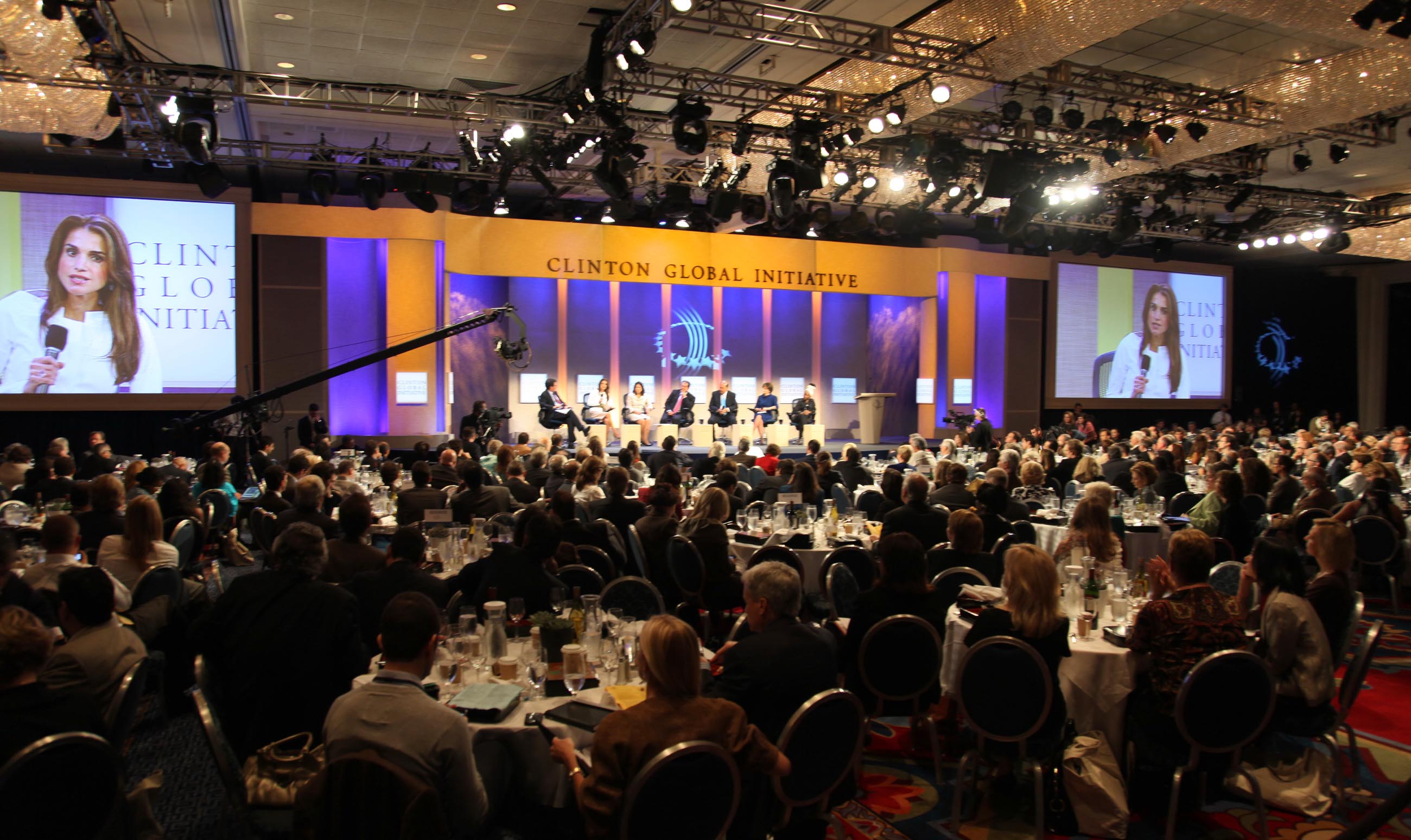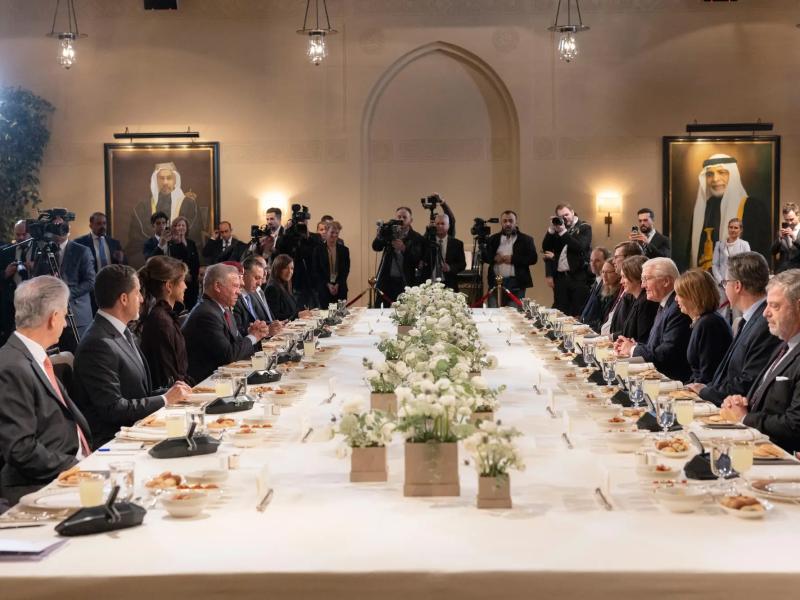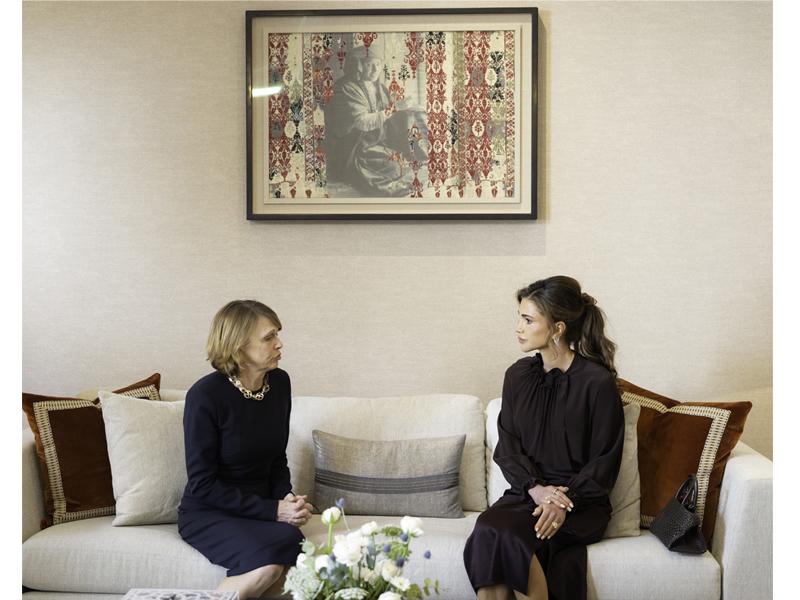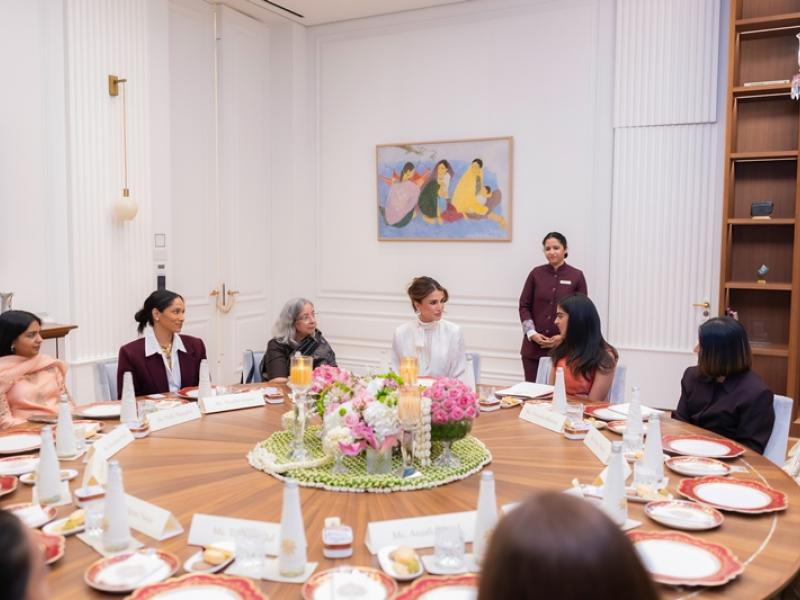(Office of Her Majesty, Press Department- New York) Global development challenges such as inequity in education, youth unemployment and women’s empowerment were at the core of Her Majesty Queen Rania Al Abdullah’s remarks during one of the sessions of the Clinton Global Initiative (CGI) meeting, on Thursday.
Participating in a panel discussion, deliberating on what it takes to meet the 2015 Education for All deadline, Queen Rania and other panelists put forth a number of solutions aimed at encouraging countries, donors and partners to fulfill their aid pledges.
“Education is a lifeline, so when we deny the children of the developing world the chance to go to school, we’re weighing them down when they’re struggling to stay afloat in a sea of poverty, ignorance and sickness,” Queen Rania said emphatically.
Her Majesty, who is a tireless advocate of children’s welfare, warned that at current rates of progress at least 29 million children will still be out of school by 2015.
The Queen stated it takes $11 billion a year to get all boys and girls into primary school, the same amount Americans spend on their pets in three months and less than one percent of global military spending.
Other participants in Thursday's panel, moderated by New York Times columnist and author of “Half the Sky”, Nicholas D. Kristoff, included Marilyn Carlson Nelson, Chairwoman of Carlson Companies, US Secretary of Labor Hilda Solis, Mexican Businessman and Philanthropist Carlos Slim Helu and President, Chairman and CEO of the Dow Chemical Company Andrew Liveris.
Her Majesty also highlighted that solutions to such challenges are not inaccessible, emphasizing that both the resources and know-how are available, with the financial crisis not to be blamed for the shortfall in funding.
Her Majesty then suggested a number of bold steps required to achieve the education goals which include: abolishing school fees, encouraging a safe and child friendly environment by refurbishing dilapidated schools, incentivizing parents through targeted initiatives such as school feeding programs, and investing on teachers to ensure excellence in education.
Queen Rania also reflected on the alarming social implications brought about by high unemployment rates across the Arab world which, she said, “are creating a growing generational gridlock in the Middle East.”
On the contrary, Her Majesty said that addressing the unemployment challenge and finding sustainable solutions to the region’s challenges, which include wide-ranging reforms in the educational sphere, would bring enormous potential for peace, profit and prosperity to the region.
“Only then can we move the region up the global value chain, where human capital is king,” said Her Majesty.
Tackling MDG 3 which promotes gender equality and women’s empowerment, Queen Rania underscored the importance of girl’s education in building stronger, healthier and safer communities.
Her Majesty cited encouraging developments and progress made in the Arab region noting that “twenty years ago only a handful of Arab countries had female government ministers and now, nearly all of them do.”
A multi-faceted approach, said the Queen, which requires patience to implement, is what is needed to understand the subtleties characterizing the Arab world, while bottom-up grassroots’ initiatives and top-down political action are the best way to root women more firmly in the political, social and economic landscape.
During the panel, Her Majesty also announced four commitments to the 1 GOAL Education for All initiative which will help alleviate global inequity in education and break paths for others to follow.
The signatories include Kjerstin Erickson, Founder and Executive Director of FORGE; Jacob Lief Founder of Ubuntu Education Fund, Beatriz Cardoso President of the Center for Education and Documentation for Community Action, and Coumba Dieng, Founder ANFE.



